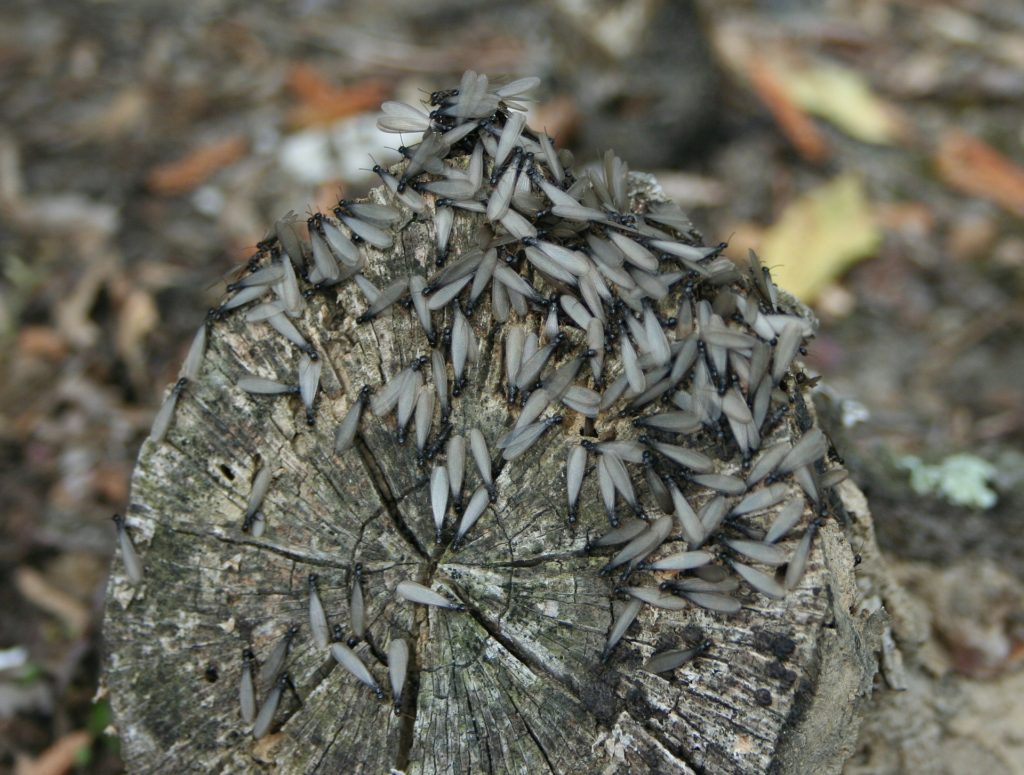
Reader Question: I need termite fumigation. I own property in located in Florida, where termites are a big part of the pest population. I will be selling the five unit building soon, and four units are rented currently. Two of the four units have leases expiring in July. The property has to be tented to exterminate the little buggers. When they fumigate, the building must be empty. Do I have to pay for these four tenants who have pets to stay somewhere? Do I make the reservations for them or do they? How do I control the costs for it? Do I have to send them a letter in regards to this? How does it work?
Monty’s Answer: The answer will assume that your leases do not contain any pest abatement language. Otherwise, your contract documents would provide much of the information you seek. Amending your leases to include a pest abatement clause may improve the property’s marketability. Be certain the lease contains language that conforms with all the state and local building and health laws. Because each state’s laws are different, consulting an attorney practicing in your state is the practical solution to implement the additional lease clause.
According to the website Sciencing.com, the discovery of termites has occurred in every state except Alaska. Termite damage is seldom discovered in the drier, higher latitude states while southern and southwestern states experience significant termite damage.
Because you have no pest clause in your lease, you have to create a plan based on timing, legal requirements, tenants circumstances, the cost to implement fumigation, and more. Here are eight considerations to consider:
-
-
- Coordinate the fumigation when the fewest tenants occupy the building. Vacant units may reduce your costs. As an example, July is right around the corner, are the tenants with their leases expiring, moving out? If they are moving out, and you have a current vacancy, you will only have to deal with two occupied units. You re-rent after fumigating. You need to talk with your tenants to make a plan.
-
-
-
- Negotiate a daily room rate allowance. A four-day fumigation duration, a hotel room, plus a daily meal allowance per occupant per day, provides you with a per person per day cost. Writing a letter in itself is likely not enough information to prepare a tenant for this event. Perhaps a letter that explains your plan and asking for a time to meet and discuss it, or meeting first and then a follow-up letter to confirm the agreement. How long will your structure be tented? Do they offer a guarantee? Will pets be affected on re-entry? Tenants will be interested in gathering this kind of information.
-
-
-
- Ed Smith, of RE/MAX Coastal Properties in Destin, FL, stated, “The prices for fumigation can vary widely. I would suggest that the landlord call two trusted local real estate brokers for recommendations. Based on my experience, the bigger national firms are often the highest prices, yet not always the best. Three quotes from providers are sensible. Hugely important are the warranties. These will vary tremendously!”
-
-
-
- Smith also noted that “going from four units to five units can be a factor in some rule changes,” so be confident your advisor understands this difference and researches the law.
-
-
-
- It may be possible is to sell the building with the termite infestation, and let the buyer deal with it. Offer the building at fair market value, less the cost of the fumigation, less an incentive to the purchaser for managing the work.
-
-
-
- Tenants may also be the cause of termite infestations, so understanding the impact of state law, health codes and housing regulations is such cases. Furniture has been known to house termites, unreported water penetrations, and other sources of termites food source, cellulose, can initiate a new colony. Most often, a landlord’s lack of diligence, ignorance of preventive measures or poor maintenance are the cause.
-
-
-
- Tenants with health related concerns in some states could resist fumigation with a letter from a physician stating the danger to their patient’s safety. There are a variety of chemicals used in different circumstances. Make your tenants aware of the product.
-
-
-
- Termites can be discouraged with preventative measures such as rain gutter extensions to move water away from the foundation, construction materials that termites do not eat, decorative stone landscaping and other measures.
-
Now you have some talking points to help you deal with termites both in your lease document and in your building.


